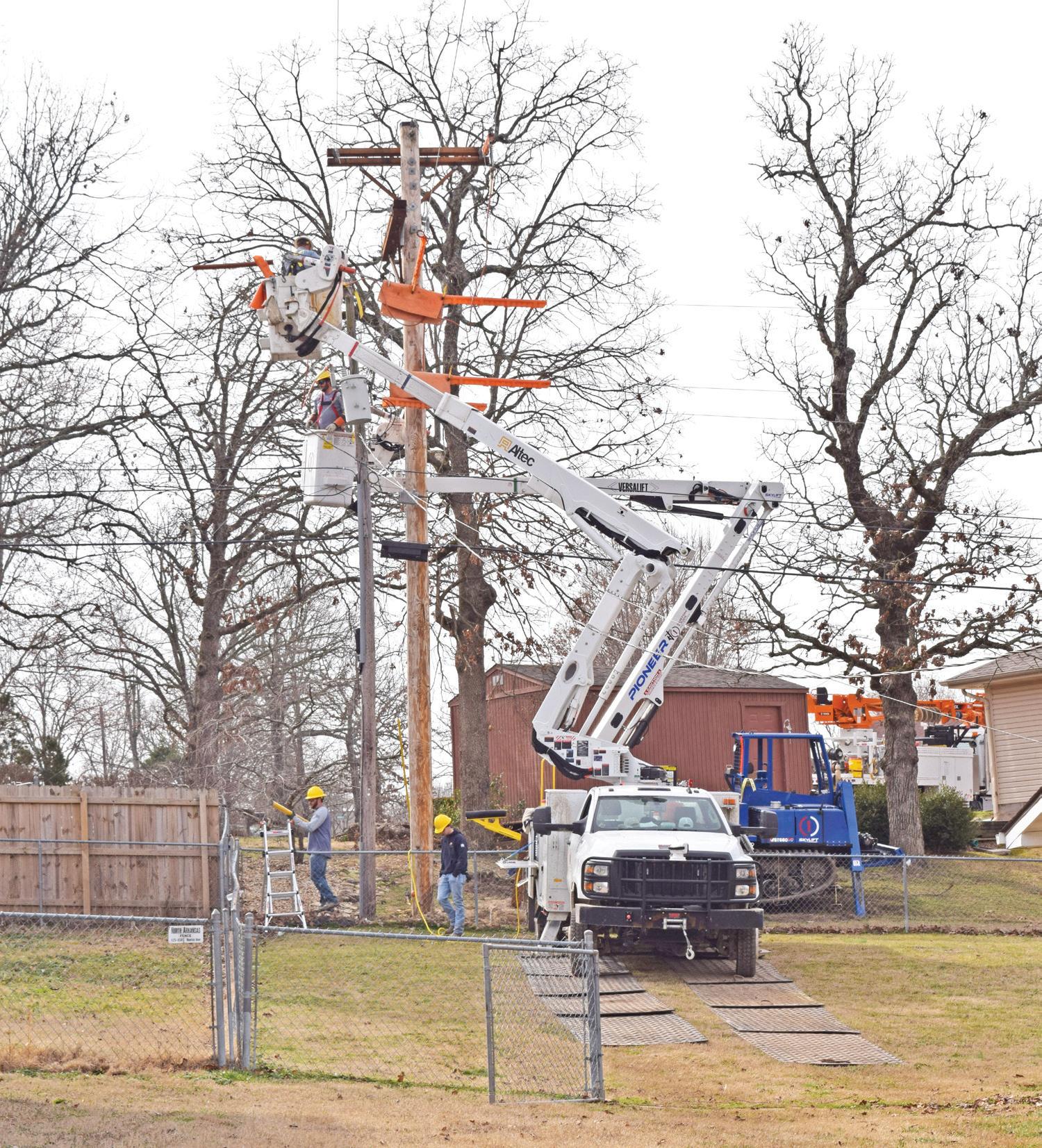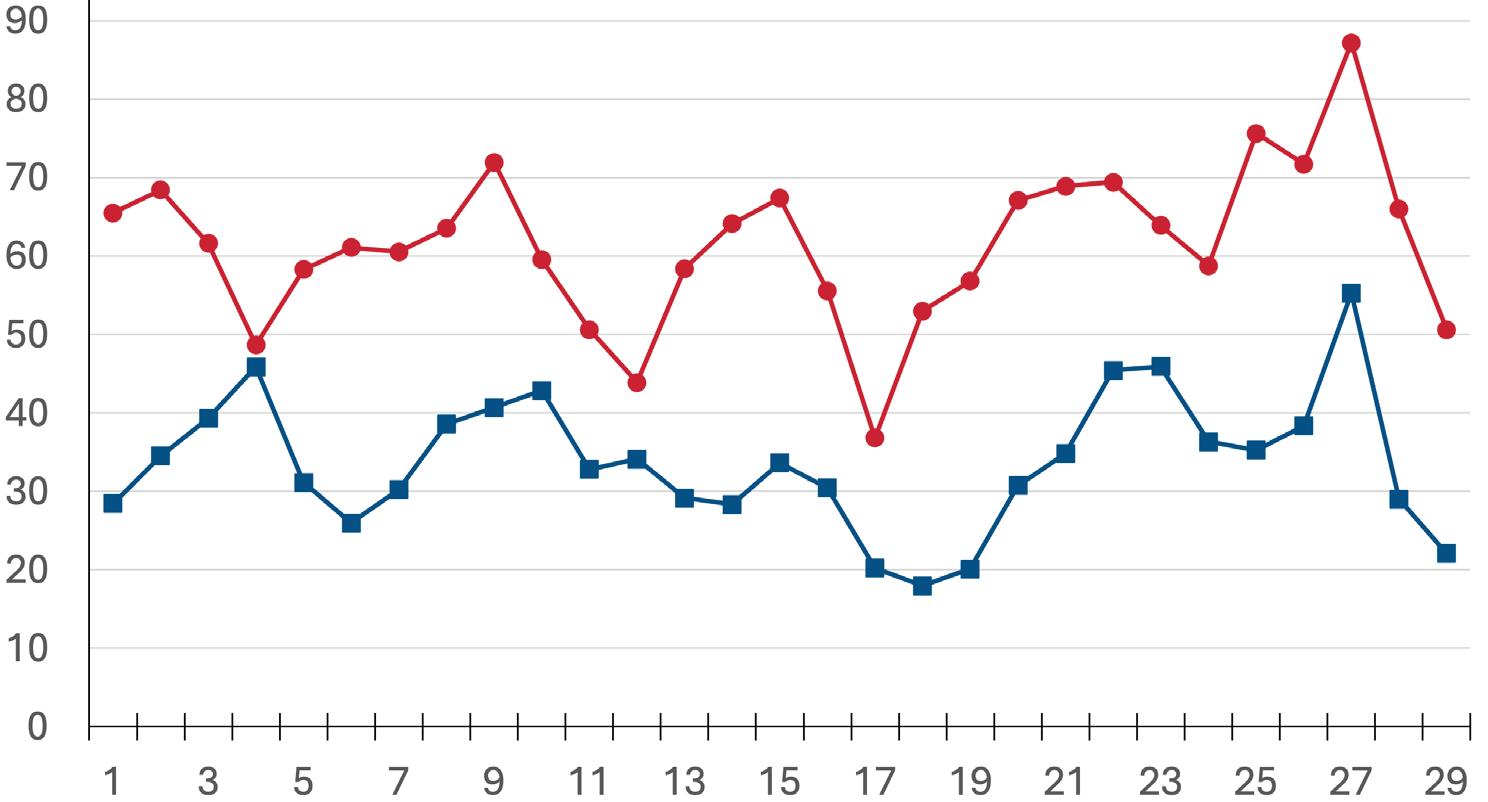THE MESSENGER
A Publication for North Arkansas Electric Cooperative Members
Recognizing lineworkers



Millions of people across North and South America will experience a total solar eclipse April 8. All of North Arkansas Electric Cooperative's service area is in the path of totality — where the moon’s shadow completely will cover the sun — and that is expected to draw an unprecedented number of tourists in the days before to experience almost 4 minutes of darkness in the afternoon.
State and local government agencies, the hospitality industry and other organizations have planned for months, or even years, for the influx of visitors. Area school districts will close for the day. Road construction projects will be suspended. Hospitals will have extra staff on hand.
NAEC created a committee of employees to address any needed preparations for before, during and after the eclipse. We also reached out to electric co-ops that were in the path of totality of the 2017 eclipse for their experiences and attended a day-long table-top drill in October hosted by Baxter Health and other community partners. We decided to close NAEC offices April 8 and keep employees on standby in the event of a power outage. Members still will be able to use the cash deposit boxes at each office and report any outage to the dispatchers on duty.
NAEC also has worked to educate our employees and interns on how to view the eclipse without damaging their eyes. During the partial eclipse phases before and after totality, people must use specialized eye protection, such as eclipse safety glasses, that is ISO 12312-2-certified. The eye

An NAEC line crews works on a system improvement job in Mountain Home. On April 8, NAEC and other utilities throughout the country will celebrate Lineworker Appreciation Day to honor the men and women who power life! Rain or shine, day or night, lineworkers brave challenging conditions to make sure we have electricity when we need it.

protection only may be removed during the brief period of totality when the moon completely blocks the sun.
Ways to prepare before the solar eclipse include:
• Ensure you have eclipse safety glasses or indirect viewing method on hand. Some area chambers of commerce, public libraries and other organizations are either giving away glasses or selling them for a small fee. You can visit nasa.gov for instructions on making a pinhole projector using a cardboard box and other basic supplies.
• Fuel up. Gas and diesel supplies may run low with more visitors in the area. Fill your tank(s) before April 5, when many visitors are expected to begin arriving.
• Pick up groceries, prescriptions and cash in advance. Not only will traffic likely be more congested and wait times longer than normal, but also stock at restaurants, stores, and ATMs might run low.
• Be aware that cellphone service might be poor. High demand, especially April 8, could make for spotty service. Try texting or using a land line, instead.
• Arrange to keep pets inside to prevent them from injuring their eyes.
Visit arkansas.com/eclipse for information on community events, lodging, weather, traffic and more surrounding the April 8 eclipse.
April is a great time to start outdoor projects. It’s also Safe Digging Month. Remember to practice safe digging by contacting Arkansas 811 first by phone, online at arkansas811.com or through the Arkansas 811 app. Each method is free and available at all times.
Whether you’re planting a tree, building a fence or doing any other digging, you are required by law to contact Arkansas 811 before you begin. Contact the service at least two days before you plan to dig, and mark the desired excavation area with white spray paint.
After your request is submitted, buried lines will be located and marked in a designated color. Underground electric lines are marked with red paint or flags. Any utility lines behind the meter belong to the property owner and will not be marked.

After the lines are marked, use safe digging methods to dig outside of the indicated markings.

A well-designed landscape can add beauty and reduce heating and cooling costs. Plant deciduous trees with high, spreading crowns to the south of your home to block sunlight in the summer and reduce the need for air conditioning. Deciduous trees lose leaves in the winter, allowing sunlight to warm your home.

Average Daily High: 61.55° compared to 57.37° in 2023
Average Daily Low: 33.71° compared to 38.2° in 2023
Total Rainfall Amount: 3.19” compared to 4.86” in 2023
Warmest Day: Feb. 27, 87.19°
Coolest Day: Feb. 18, 17.95°